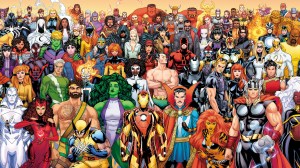Dungeons & Dragons doesn’t appear to be looking for a way to limit who publishes material compatible with its upcoming edition. This week, D&D Design Team executive producer Kyle Brink appeared on several podcasts and influencer YouTube pages to explain Wizards of the Coast’s reasoning behind the recent OGL controversy and provide preliminary updates about how Wizards plans to move forward from the disastrous weeks-long split between the company and its fanbase. Of particular note in the interviews, which were separately held by the 3 Black Halflings podcast, the Mastering Dungeons podcast, and YouTube creator Ginny Di, was Brink stating that the System Reference Document (SRD), which lists what rules, mechanics, and Wizards of the Coast-originated language can be used in third party content, would be updated to remain compatible with the upcoming changes being playtested in the One D&D playtest.
Videos by ComicBook.com
“The SRD will remain compatible with all the stuff we publish, including the new rule set,” Brink told Ginny Di. “There will be like an SRD 5.2, 5.3, 5.4, and whatever, each of which will remain in Creative Commons and under the OGL 1.0a.”
“Our commitment is that the SRD will continue to be compatible with the rules updates that are coming,” Brink said to Teos Abadia of Mastering Dungeons. “Now whether that’s because we’re going to bring rules in – bring wholesale text in from the rules updates – or whether we use some kind of bridging language…that’s our promise is that the SRD will be updated to remain compatible for the new rules update.”
Brink’s comments are a continued reversal from Wizards’ plans to de-authorize the Open Game License (OGL), which provided a framework for publishing material compatible with various Dungeons & Dragons rulesets for decades. Even after Wizards of the Coast abandoned its plans to de-authorize the OGL and released the SRD into the Creative Commons, many content creators and publishers assumed that the upcoming new edition, which is currently being playtested under One D&D, would not be available for creators to use except under a more restrictive license. Wizards of the Coast previously tried to move away from the OGL and open gaming when it switched to 4th Edition rules back in 2007. Publishers could only make content for 4th Edition under the Game System License, which was much more restrictive than the OGL. Many publishers opted to simply continue making material for 3rd Edition (and specifically the revised 3.5 Edition) instead, keeping that edition dominant within greater tabletop RPG marketplace. The result was an “edition split” where fans had to choose between a ruleset supported by third-party publishers or a ruleset supported by Wizards.
In the interviews, Brink noted that One D&D was looking to make revisions to 5th Edition rather than release a full new ruleset, which would complicate any attempt to keep One D&D under a more restrictive license. Because One D&D will in essence be a revision to 5th Edition, it would hypothetically be easier for third-party publishers to “reverse-engineer” any revisions to the rules using the current SRD and circumnavigate any attempts to keep One D&D restricted under a new license.
Brink’s commitment to keeping the SRD consistent with the most recent D&D rules is notable for several reasons. It protects D&D from an “edition split” by keeping the most updated rules available for third-party publishers to use. It also provides some assurances to third-party publishers that they will be able to continue creating content for the most recent version of D&D, thus incentivizing them to keep supporting D&D and keep D&D in its current place of market dominance. It also undercuts the third-party publishers who plan to release their own 5E compatible systems that could potentially rise up to be a viable challenger to D&D within the tabletop marketplace.
Of course, Brink’s “commitment” to updating the SRD will be met with skepticism until Wizards actually updates the system. Trust in Wizards of the Coast remains at a low point and many publishers will still likely move forward with plans to either create their own systems or at least not commit as wholeheartedly to future editions of D&D. However, it seems that One D&D (and future updates to D&D) will be available for any publisher to use and support.








